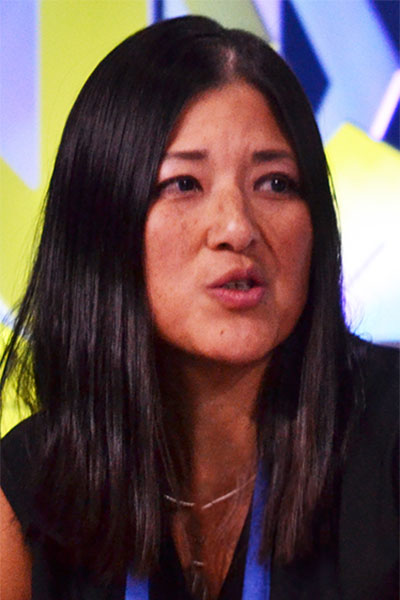One of the most pressing questions about COVID-19 in patients with rheumatic disease is differentiating long COVID from rheumatic conditions, such as fibromyalgia and chronic fatigue syndrome, because the symptoms are very similar. Epidemiologic, diagnostic, and treatment data are lacking, and more research needs to be done on this important topic.

In the interactive Sunday session, Meet the Panel: COVID-19, expert panelists helped the audience identify rheumatic symptoms of long COVID-19 and facilitated discussion on the most effective management strategies for rheumatic disease associated with COVID-19. The session is available on demand for registered ACR Convergence 2023 participants through Oct. 31, 2024, on the meeting website.
“An increased risk of autoimmune disease after COVID has been shown to occur, and it is likely that COVID vaccination will help mitigate that. Being immunocompromised, and taking immunosuppressive treatments, makes patients vulnerable to developing severe illness from COVID, and long COVID will more likely develop in these patients,” said Monica Verduzco-Gutierrez, MD, Academic Physiatrist, Professor, and Distinguished Chair of the Department of Rehabilitation Medicine at the University of Texas Health Science Center at San Antonio, Clinical Chief of Physical Medicine and Rehabilitation at the University Hospital System, and Medical Director of Critical Illness Recovery and Neurorehabilitation at Warm Springs Rehabilitation Hospitals.

Many audience members wanted to know how COVID vaccination affects the risk of long COVID, but the panelists stated there isn’t enough research on this to provide definitive answers.
The urgency of this was expressed by Susan Lee, MD, Associate Professor of Medicine, University of California, San Diego.
“I think it is important to note the impact of long COVID on patients and the severe suffering that these patients go through,” she said.
Which drugs should be used in treating COVID and long COVID in patients with rheumatic disease was another topic of high interest, as was alternative medicine options, such as acupuncture. Since there are few guidelines on COVID drug treatments, especially in patients with rheumatic disease, the panelists were reluctant to go on record with recommendations.
Risk of viral rebound in rheumatic patients was also of concern for the audience.

“A paper will come out shortly illustrating the risk of viral rebound in these patients and will discuss the controversies over how to prevent and mitigate this risk,” said Zachary Wallace, MD, MSc, Rheumatologist and Clinical Epidemiologist at Massachusetts General Hospital and Harvard Medical School. “The best way to approach this is to have shared decision-making with patients.”
The panelists expressed their appreciation that the audience was still willing to listen and learn about COVID after multiple stressful years of dealing with it.
“I know that a lot of the long COVID community and advocacy groups are really trying to get a moonshot to get more funding from the National Institutes of Health so we can provide you with better and more complete answers than we did today,” Dr. Verduzco-Gutierrez said. “This is especially important because people are still getting infected with COVID and are still getting long COVID.”

Registered ACR Convergence 2024 Participants:
Watch the Replay
Select ACR Convergence 2024 scientific sessions are available to registered participants for on-demand viewing through October 10, 2025. Log in to the meeting website to continue your ACR Convergence experience.
